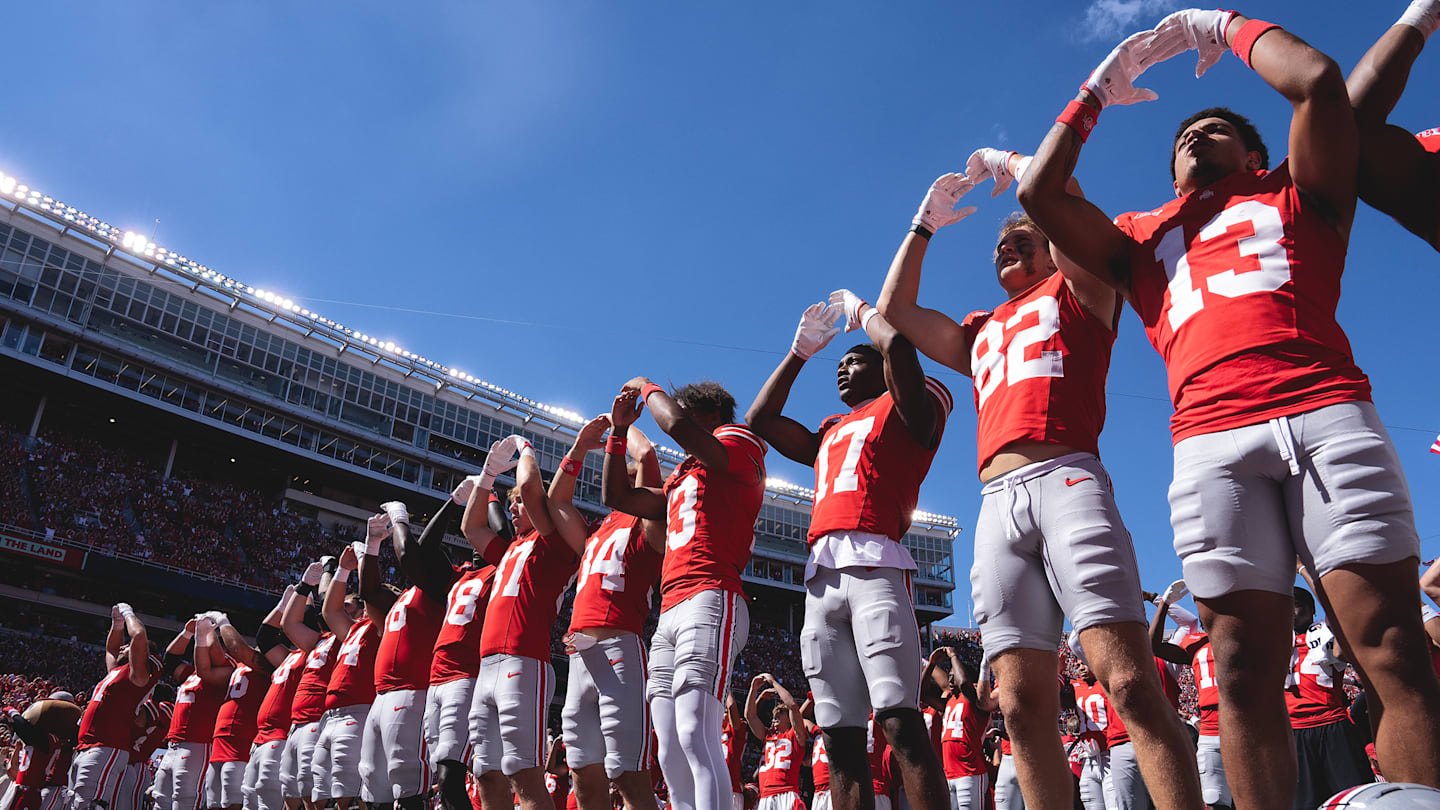Belichick Addresses UNC Future Amid Speculation

Belichick Addresses UNC Future as Speculation Swirls
Bill Belichick, the legendary NFL coach now leading the University of North Carolina football program, has issued a public statement in response to mounting rumors that his tenure with the Tar Heels may be nearing an end. Reports surfaced this week that Belichick and UNC officials had discussed potential buyout options, with insiders suggesting the coach could even trigger his own $1 million departure clause if a soft landing elsewhere is secured. Amid speculation about recruiting and practice violations—which could complicate any separation—Belichick assured fans and stakeholders that he remains “fully committed to the UNC program and what we’re building here.” UNC athletic director Bubba Cunningham echoed this sentiment, emphasizing the university’s full support for Belichick as head coach[1].
Broader Context and Program Implications
This episode highlights the high stakes of coaching transitions in college football, especially at a pivotal moment for the ACC as conference realignment looms. While Belichick’s arrival brought instant credibility and media attention, any abrupt departure could set back UNC’s progress and recruiting momentum for years. Analysts note that the Tar Heels’ future conference affiliation—whether in the ACC, Big Ten, or SEC—may hinge on the stability and success of the football program under Belichick’s leadership[2]. For now, the coach’s clear message aims to calm the waters, but the coming weeks will be critical for both Belichick and UNC as they navigate uncertainty on and off the field.
About the People Mentioned
Bill Belichick
Bill Belichick is a highly accomplished American football coach, best known for his tenure as head coach of the New England Patriots in the National Football League (NFL). Beginning his NFL coaching career in 1975 as an assistant with the Baltimore Colts, he worked with several teams, including the Detroit Lions, Denver Broncos, and notably the New York Giants. As the Giants’ defensive coordinator starting in 1985, Belichick helped develop a dominant defense that contributed to two Super Bowl victories in 1986 and 1990. In 1991, Belichick became the head coach of the Cleveland Browns, where he coached for five seasons. After assistant coaching roles with the Patriots and New York Jets, he was briefly named Jets head coach in 2000 but resigned after one day. Soon after, he took over as head coach of the Patriots, beginning a transformative era. Under Belichick’s leadership from 2000 to 2023, the Patriots became one of the NFL’s most dominant franchises. The team won six Super Bowl championships (2002, 2004, 2005, 2015, 2017, and 2019), the most by any head coach in NFL history, with quarterback Tom Brady playing a key role in this success. Belichick earned three AP NFL Coach of the Year awards (2003, 2007, 2010) and set numerous records, including most playoff victories (31). The Patriots also made nine Super Bowl appearances and won 17 AFC East division titles during his tenure. Belichick is recognized for his strategic expertise, especially on defense, and his ability to adapt and rebuild championship teams over decades. After leaving the Patriots, he became the head football coach at the University of North Carolina, connecting with his family’s coaching legacy. His father, Steve Belichick, was a longtime assistant coach at the U.S. Naval Academy and the University of North Carolina, influencing Bill’s deep football knowledge from a young age[1][2][5][6][7].
About the Organizations Mentioned
University of North Carolina
The University of North Carolina (UNC) System is a premier public university network in the United States, anchored by its flagship campus at Chapel Hill. Chartered in 1789 and opening its doors in 1795, UNC-Chapel Hill holds the distinction of being the first public university in the country and the only one to award degrees in the 18th century. The UNC System now comprises 16 universities and the North Carolina School of Science and Mathematics, serving over 220,000 students and driving innovation in education, research, and public service. Historically, UNC-Chapel Hill was founded on the ideals of accessibility and academic excellence, with Revolutionary War officer William Richardson Davie recognized as its “Father.” The university weathered periods of closure, notably during Reconstruction, but rebounded under leaders like Kemp P. Battle. In 1931, the UNC System was consolidated, integrating institutions focused on agriculture, engineering, and women’s education. The system expanded further in 1971, bringing all public senior institutions under one umbrella. UNC is renowned for its research output, particularly in business, technology, and health sciences. The Chapel Hill campus is a major research hub, with strong ties to the Research Triangle—a global center for tech and biotech innovation. UNC’s business school and computer science programs are highly ranked, producing leaders in entrepreneurship and technology. The university also boasts a robust study-abroad program, with nearly a third of undergraduates gaining international experience. Today, UNC enrolls nearly 30,000 students at Chapel Hill alone and counts over 300,000 alumni, including Nobel laureates, Rhodes Scholars, and industry pioneers. Its commitment to innovation, affordability, and public service makes UNC a key player in shaping the future of business and technology in the U.S.
Atlantic Coast Conference
The **Atlantic Coast Conference (ACC)** is a prominent collegiate athletic organization in the United States, established in 1953 by seven universities that split from the Southern Conference primarily due to disagreements over post-season football play restrictions[2][4]. The founding members were Clemson, Duke, Maryland, North Carolina, North Carolina State, South Carolina, and Wake Forest, with the University of Virginia joining later that year despite initial resistance from its leadership[2][3]. The ACC was created to provide a more manageable and competitive athletic conference along the Atlantic coast, focusing on both football and basketball, although it has become especially renowned for its basketball excellence over the decades[1][4]. Academics and athletic standards have been a priority for the ACC since its early years, as exemplified by its pioneering implementation of minimum SAT scores for student-athletes in the 1960s, a policy reflecting its commitment to balancing sports with education[2][3]. The conference grew steadily over time, expanding its membership to include notable universities such as Florida State in 1990, Miami, Virginia Tech, and Boston College in the early 2000s, and more recently, schools like the University of California, Berkeley, Stanford, and Southern Methodist University in 2024, reflecting a broadening geographic footprint beyond the traditional Atlantic coast[4][5]. Currently, the ACC comprises 15 full member schools plus Notre Dame, which competes in all sports except football within the conference[4]. Key achievements of ACC member schools include multiple national championships across various sports, particularly football and basketball. Clemson University’s football program, for example, has won two national titles and multiple conference championships, securing its status as a powerhouse within the league[6]. The ACC continues to be a leader in collegiate athletics, known for its competitive balance, academic standards, and innovation in college sports governance[5][7]. In summary, the Atlantic Coast Conference stands as a historic and influential collegiate athletic organization, combining rich traditions in sport
Big Ten
## Overview The Big Ten Conference, officially known as the Big Ten, is one of the oldest and most prestigious collegiate athletic conferences in the United States, but its influence extends far beyond sports. Founded in 1896 as the Intercollegiate Conference of Faculty Representatives—also known as the Western Conference—the Big Ten was initially created to standardize rules and improve safety in college football, which was growing rapidly in popularity at the time[1][3]. Its founding members included the Universities of Chicago, Illinois, Michigan, Minnesota, Wisconsin, Purdue, and Northwestern[1][3]. ## Historical Development Over the decades, the Big Ten has undergone several significant changes. Iowa and Indiana joined in 1899, and Ohio State was added in 1912[3]. The conference experienced a notable departure when the University of Michigan left temporarily from 1907 to 1916 due to disagreements over rules, only to return and solidify the “Big Ten” moniker[1][2]. The University of Chicago withdrew in 1946, but Michigan State’s addition in 1949 restored the conference to ten members[3]. The conference remained stable for nearly 40 years before a new era of expansion began in 1990 with the addition of Penn State, followed by Nebraska in 2011, Maryland and Rutgers in 2014, and most recently, Oregon, USC, Washington, and UCLA in 2024, bringing the total to 18 members[3][5]. ## Key Achievements and Notable Aspects The Big Ten is renowned for its combination of athletic excellence and academic rigor. It pioneered the Big Ten Medal of Honor in 1915, recognizing student-athletes who excel both on the field and in the classroom[5]. The conference also established the first permanent bowl-conference affiliation with the Tournament of Roses in 1946 and introduced a groundbreaking revenue-sharing model for television proceeds in 1955[5]. Academically, th
SEC
The **Securities and Exchange Commission (SEC)** is a U.S. federal regulatory agency established in 1934 to restore public confidence in the capital markets after the 1929 stock market crash. Its core mission is threefold: **protect investors, maintain fair, orderly, and efficient markets, and facilitate capital formation**[2][4][6]. The SEC enforces federal securities laws and regulates key market participants, including securities exchanges, brokers, dealers, investment advisors, and mutual funds. It requires companies offering securities to the public to disclose truthful and comprehensive information about their business and investment risks. It also oversees market intermediaries to prevent fraud, insider trading, and market manipulation[1][3][6]. Over time, the SEC’s role has evolved to address changing market dynamics and technological advances. It now provides investor education, facilitates capital formation especially for small businesses and fintech firms through initiatives like the Capital Raising Hub and FinHub, and actively engages in rulemaking with public input[1][6]. The SEC is led by five presidentially appointed commissioners and operates multiple divisions and offices, including a dedicated Division of Enforcement responsible for investigating violations, pursuing administrative actions, and litigating cases in federal courts[3]. It also supports whistleblowers who report fraudulent activities[1]. Notable achievements include developing comprehensive regulatory frameworks such as the Securities Act of 1933 and the Securities Exchange Act of 1934, pioneering investor protection laws, and adapting regulations to new challenges like digital asset markets. The SEC's enforcement actions and policy leadership have been crucial in maintaining market integrity and investor trust in U.S. financial markets[2][7]. Currently headquartered in Washington, D.C., the SEC continues to be a pivotal institution in U.S. financial regulation, balancing innovation with investor protection to uphold the stability and efficiency of the capital markets[5][6]. Its commitment to transparency, fairness, and accountability makes it a key player for business and technology news audiences interested in market oversight an















